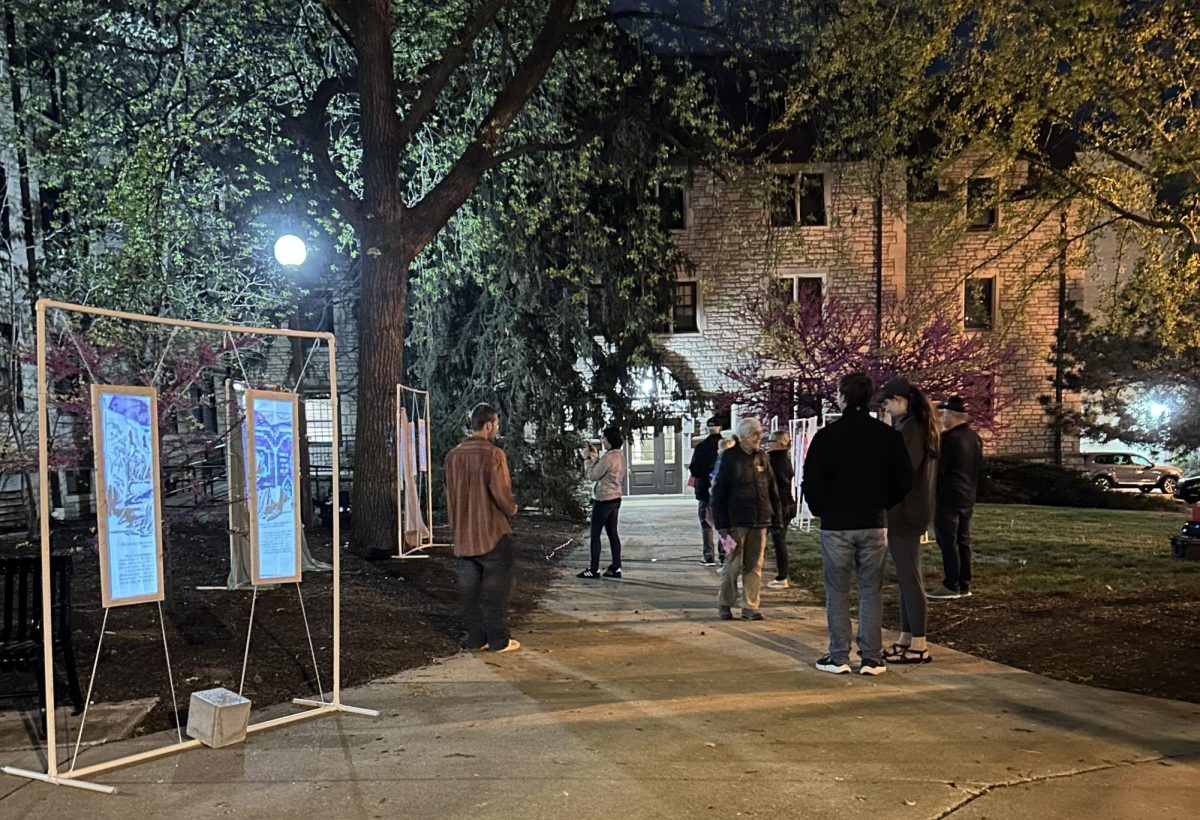The Missouri Court of Appeals, Western District, convened Wednesday on campus at Hulston Hall.
The panel consisted of four judges, Chief Judge Mark Pfeiffer, Judge James Welsh, Judge Gary Witt and Judge Edward Ardini Jr. Pfeiffer and Witt both graduated from the MU School of Law.
The judges heard prepared oral arguments presented by various lawyers for three different cases. The hearing included cases involving the Missouri Department of Public Safety, a gas company and a contraceptive implant.
The Western District’s headquarters is in Kansas City, Missouri, but the court often convenes court away, at various locations in western Missouri. This is to allow individuals, especially law students, an opportunity to become familiar with the judicial system that’s not always publicized, according to the School of Law’s website.
Approximately 50 law students filled the seats in Hulston Hall, some of which attended for a class.
Law student Cameron Brown’s class was assigned to read the briefs on the summary page, attend the hearing and later write up a mock opinion about each case.
She said attending the hearing and listening to the lawyers’ arguments made understanding the overall cases easier for her.
“It makes the briefs that we read a little more clear versus just reading it on paper, and kind of seeing how it actually goes in real life,” she said.
Law professor Sam Halabi had his students attend at least one of the hearings and then debriefed with them the next day in class.
He said that his students seemed to have learned a lot from the experience. He wanted them to see the interaction between judges and lawyers at the appellate level as well as see how a subsistent area of the law plays out in court, he said.
The court hearing was “justice at its best,” Halabi said. He said a lot of students agreed that the lawyers had well thought out arguments and the judges demonstrated a deep familiarity with the record and posed relevant questions to the lawyers.
He also said the court traveling to MU was beneficial to students, as it’s easier for them to sit in on a court hearing that’s at their school as opposed to traveling to Kansas City. It’s a helpful activity that the judges do, he said and he hopes they continue to do it.
“They come here so they can help students learn, and I think that’s really great,” Halabi said.
The first case presented was Stacy S. Minze v. the Missouri Department of Public Safety. The case was on the notion that an employee working with the department was “subjected to unlawful discrimination and retaliation in violation of the Missouri Human Rights Act,” according to the summary page provided by the law school.
The appellant’s argument was that the trial court made an error in the original trial due to misstatements of the law and failure in judgement, according to the summary page.
The respondent for the second case was the Missouri Public Service Commission and the appellant was the Missouri Office of Public Counsel.
The appellant argued that the PSC mistakenly ordered Laclede Gas Company, a Missouri-based gas corporation, to increase its infrastructure system, according to the summary page. The order was a mistake because it is unlawful, unreasonable and subject to review under a Missouri statute, the summary page states.
The third and final case presented before the judges was between Jessica Williams, the appellant, and Bayer Corporation, a pharmaceutical company, the respondent.
In 2013, Williams’ physician attempted to implant a medical contraceptive device into her fallopian tubes called Essure.
One of the lawyers said Williams expressed excruciating abdominal pain and only one implant was placed in her fallopian tubes before she had her physician stop the procedure.
Weeks after the initial visit, Williams experienced even more pain and went back to her physician to have the device removed altogether, the lawyer said.
During this visit, the lawyer said physicians allegedly attempted to remove the device, which ended up breaking apart and perforating Williams’ uterus, and broken pieces of Essure remained in her body.
Because of this, the lawyer said Williams underwent a hysterectomy and a surgery that removed her fallopian tubes to combat the pain.
The lawyer arguing for Williams said she will require future medical care because of this contraceptive device and the physicians that implanted it.
The appellant court argued the circuit court erred in dismissing Williams’ case because the court misinterpreted the Medical Device Amendments of 1976 and misapplied that statute and federal preemption doctrine, according to the summary page.
The hearings lasted approximately three hours and afterward, Judge Pfeiffer invited the lawyers who argued for the cases and the law students who attended the hearings to a social gathering at a local restaurant.
Pfeiffer said the Western District tries to visit most colleges and universities in west Missouri, as well as other regions and especially law schools such as MU and St. Louis University.
“We do like to take our court into the community that we serve,” he said. “It’s important to us, but it’s also fun for us to be here.”
The Western District has visited MU before and has become a “regular stop” for the court, according to the School of Law’s website.
_Edited by Olivia Garrett | [email protected]_













